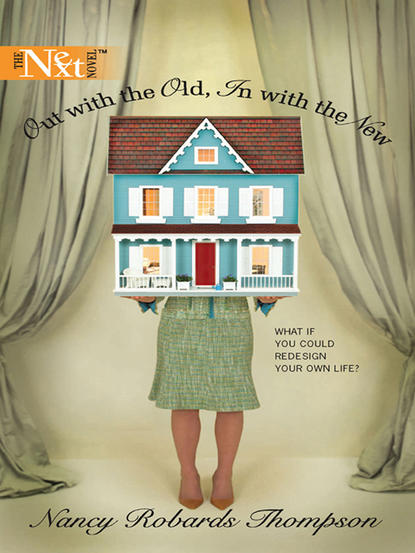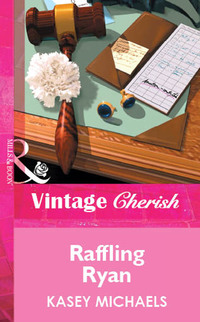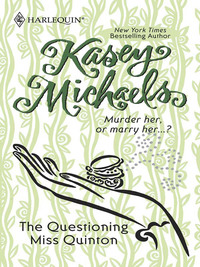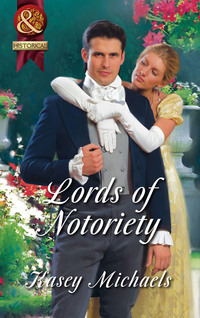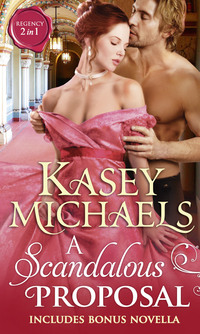
Полная версия
The Dubious Miss Dalrymple

UNCHAPERONED!
And then—directly in front of his eyes, like a lowly caterpillar shedding its cocoon—Elinor Dalrymple metamorphosed into the most glorious painted lady he had ever been privileged to see!
He could feel his body responding to the stimuli of Elly’s appearance, to the sweet violet scent of her hair as it billowed in the breeze off the Channel, to the moist sweetness of her mouth as she smiled up at him with all the guileless invitation of a first-time strumpet.
Her hands on her hips, her entire stance daring him to speak, he heard her say, “Well, John, do you still believe we are in no need of a chaperone?”
The little tart! She was baiting him, deliberately urging him to commit an action that could be seen as nothing less than a marriage-mandatory compromise of her reputation. He’d like to slap her silly. He’d like to grab her by the shoulders and—and kiss her until she begged for mercy!
Kasey Michaels is the New York Times and USA Today bestselling author of more than sixty books. She has won the Romance Writers of America RITA Award and the Romantic Times Career Achievement Award for her historical romances set in the Regency era, and also writes contemporary romances for Silhouette and Harlequin Books.
The Dubious Miss Dalrymple
Kasey Michaels

www.millsandboon.co.uk
MILLS & BOON
Before you start reading, why not sign up?
Thank you for downloading this Mills & Boon book. If you want to hear about exclusive discounts, special offers and competitions, sign up to our email newsletter today!
SIGN ME UP!
Or simply visit
signup.millsandboon.co.uk
Mills & Boon emails are completely free to receive and you can unsubscribe at any time via the link in any email we send you.
CONTENTS
PROLOGUE
CHAPTER ONE
CHAPTER TWO
CHAPTER THREE
CHAPTER FOUR
CHAPTER FIVE
CHAPTER SIX
CHAPTER SEVEN
CHAPTER EIGHT
CHAPTER NINE
EPILOGUE
PROLOGUE
“HAVE YOU HEARD the news?”
Lord Blakestone lowered his newspaper to glare overtop it at the excited young man who had dared to intrude on his peace. Heaven knew he got precious little of it these days. “I read the news when I require an infusion of knowledge, Hopwood,” he told the fellow in crushing tones meant to depress this increasing familiarity that was fast making Boodle’s coffee room too common for words. “If I wished the day’s happenings bellowed at me, I would sit in my own house and let my wife’s dear, beloved mother natter me to death.”
Hopwood was instantly cast down, but he was by no means to be counted out. He’d come directly from Bond Street, where tongues had been wagging nineteen to the dozen, and he’d be damned for a dolt if he was going to allow this chance to elevate his consequence here at Boodle’s—a club he had stumbled into because of his parentage, and not his own standing or even inclination—to be stomped on by a pompous blowfish like Blakestone. “But—but I just heard. It’s the most incredible thing! Lord Hythe is dead!”
Blakestone tossed his newspaper to the floor in an untidy heap, grumbling something about the servants being reminded to take better care when pressing the pages so that they would refold themselves automatically when the dratted thing was no longer required.
After venting his spleen on both the hapless newspaper and the overworked Boodle’s servants (who were undoubtedly at that moment boiling coins somewhere in the bowels of the club so that the members should not have to smudge themselves by handling dirty money), he looked up at Hopwood and inquired shortly: “I don’t believe it. Wythe? Wythe’s dead?”
Hopwood shook his head vigorously. As audiences went, Blakestone appeared to be a poor choice. “No, no. Not Wythe. Hythe.”
“Don’t correct your betters, you miserable scamp. I say, Freddie!” Lord Blakestone called to Lord Godfrey, who had just entered the coffee room. “Have you heard the latest? Dreadful news. Wythe is dead.”
“No!” Lord Godfrey ejaculated, pressing a hand to his chest, as if to be sure his own heart was still ticking along normally. He and Wythe were much of the same age. “How did it happen?”
Lord Blakestone waved an arm imperiously, summoning a servant and ordering another, freshly pressed, newspaper. “Damned if I know, old man. What do I look like, Freddie? A bleeding newsboy? Ask this puppy here. He seems to be hot to spread the gossip. Finally!” he groused, snapping the freshly pressed newspaper out of the servant’s hand. “Took you twelve seconds too long, my fine fellow. You’ll never get ahead in life lollygagging, y’know.”
Lord Godfrey turned to Hopwood, who was leaning against a heavy mahogany table and most probably wondering what he had done to deserve membership to a snake pit such as Boodle’s. “Corny says to ask you, whoever you are. So? Well, speak up, young man. What happened to Wythe? I saw him just last week at Tatt’s, full of piss and vinegar as ever. Dead, you say? How’d it happen? Apoplexy? He was getting on, wasn’t he—at least ten years my senior, I’m sure.”
“Five your junior,” Lord Blakestone corrected heartlessly, turning the page to check on the latest news of Napoleon Bonaparte’s bloodletting on the Continent. “You’re looking pale, Freddie. It’s all that running about you do with that warbler from Covent Garden. Not seemly in a man your age—nor smart, now that I think about it. Best sit down before you join Wythe below ground.”
Hopwood felt an almost overwhelming urge to pull at his hair and scream, or possibly even throw something—Lord Blakestone’s dusty wig was the first object that came to mind. “Not Wythe, sir—Hythe. He was young, in his prime. I was just taking the air on Bond Street when I heard the news. He was lost overboard from his yacht in a storm or something. Near Folkestone, I think.”
Lord Godfrey subsided into a burgundy leather wing chair, glaring impotently at Lord Blakestone, his agitated brain taking in information only as it pertained to him. “A yacht? I didn’t know Wythe could afford to keep a yacht.” As he couldn’t show any real anger toward Lord Blakestone, whose social connections were considerably powerful, he directed his fury at a man who could no longer hurt him. “Y’know what—bloody stingy, that’s what Wythe was. A yacht! Never took me up on the thing.”
Goaded, or so he felt, past all bearing, Hopwood opened his mouth and shouted—just as a half dozen worse-for-liquor gentlemen sitting in the dirty end of the room exploded in mirth over some joke or other: “Not Wythe, you feather-witted old nincompoops! Hythe! Hythe!”
While neither Lord Blakestone nor Lord Godfrey paid so much as a jot of attention to the red-faced young man bellowing ridiculousness within four feet of their ears, they were attracted to the sounds of merriment across the room, and immediately longed to join in the fun. Looking back and forth to each other across the table that separated their matching burgundy leather wing chairs, the two lords scrambled to their feet, knowing their gossip would be a sure entry to the group.
As they walked toward the small gathering of gentlemen, they called out in unison, “Have you heard? It’s all over town. It’s the strangest thing. Wythe’s dead!”
“Not Wythe, you paper-skulled asses. Hythe! Alastair Lowell, Fourteenth Earl of Hythe, and a damned fine gentleman.” Hopwood pushed the discarded newspaper to the floor and collapsed into Lord Blakestone’s abandoned chair, giving up the fight. “Oh, what does it matter anyway?” he soothed himself. “The fellow’s still dead, ain’t he?”
A MEMORIAL SERVICE was held three weeks later at Seashadow, the Hythe seat in Kent, with several of the late Earl’s friends making the trip down from London in the fine spring weather to pay their respects—although it was rather awkward that there was no body to neatly inter in the family mausoleum.
“His bright light lies asleep with the fishes,” the vicar had intoned gravely upon mounting the steps to the lectern, these depressing words heralding an hour-long sermon that went on to graphically describe the water fate of Alastair Lowell’s earthly remains until a none too discreet cough from Miss Elinor Dalrymple—sister of the new Earl—caused the man to reel in his tongue just as he was about to utter the words “putrid flesh” for a seventh time.
The number of fashionable young ladies of quality (as well as a colorful spattering of beautiful but not quite so eligible women) among the mourners would have cheered Alastair Lowell no end had he been privileged to see them—and so said his friends as they paid their respects to the new Earl and his solemn-faced sister before hastily departing the crepe-hung chapel for some decidedly more cheerful atmosphere.
“Made a muff of it,” Leslie Dalrymple, the new Earl, said tragically, watching from the portico as the last traveling coach pulled out of the yard, leaving him to deal with a dining room piled to the chandeliers with uneaten food. “Ain’t congenial, y’know. Never were.”
“Nonsense, darling,” Elinor Dalrymple consoled her brother, patting his thin cheek. “You were all that is gracious, and your eulogy, although understandably brief, as you had never met our cousin, was everything it could be. The late Earl, rest his soul, merely attracted those of his own, irresponsible ilk—considering that it is rumored our departed cousin was deep in his cups the night of his fatal accident. Doubtless they’re all off now to carouse far into the night, toasting their fallen friend and otherwise debauching themselves.”
Leslie shook his blonde, shaggy head, dismissing her assumption that he blamed himself for his guests’ hasty departure. “Not me, Elly. You. You’re the one routed them—what with your starchy ways. Scared them off, that’s what you did. Besides, black does not become you. Don’t understand it, as you’re blonde and all, but there it is. I do wish you wouldn’t persist in wearing such dark colors.”
Elinor looked up at her brother, who, although three years her junior, stood a full foot higher than she. “Thank you, Leslie,” she rejoined calmly, slipping her arm through his. “You have truly made my day. Now, would you be so kind as to join me in the dining room? I wouldn’t wish for all that food to go to waste.”
The pair entered the house to see that the Biggs family, clad in their Sunday finery, was lined up at attention in the enormous three-story-high hall, obviously in preparation of meeting the late Earl’s mourners.
Nine heads turned toward the doorway as Leslie and Elinor stepped across the threshold; nine necks craned forward to look past their masters for the horde of diners about to push their knees beneath the late Earl’s table and eat their heads off; nine pairs of sky-blue eyes widened as Elinor closed the door firmly on the spring sunshine, and nine mouths split into wide, anticipatory grins as their new mistress announced that the Biggses would just have to discover some way to dispose of the bound-to-be-ample remnants of the funeral feast.
Billie Biggs shifted Baby Willie, her youngest, on her hip and took one step forward. “Chased ’em off, did ya?” she asked in her deep, booming voice that reached all the way up to the rafters. “Good for you, missy. Never saw a sorrier-lookin’ bunch in m’life. They’d have ate us out of house an’ home before we knew which way to look. Come on, children—best get outta those duds afore ya ruin ’em.”
Each Biggs child obediently stepped forward in turn, to either bow or drop curtsies to the Dalrymples before leaving the hall.
Little Georgie, who helped his father in the kitchens (and the eldest at eighteen, though definitely not the brightest), tugged at his forelock and bowed his immense frame low, saying only, “Daft sort of party,” before shuffling toward the scullery—his mother’s absentminded cuff across the top of his head hurrying him on his way.
Lily, sixteen, a very pretty girl who served as upstairs maid, made an elaborate curtsey to Leslie—ignoring Elinor’s presence—and headed for the staircase, her skirts twitching side to side as provocatively as she dared allow in her mother’s presence.
Fifteen-year-old Harry, who worked in the stables, approached the Dalrymples and offered his condolences in a polite voice before passing behind them and through the front door, intent upon returning to the stable yard to check on a mare ready to drop her foal.
Elinor, whose new shoes were pinching her unmercifully, resigned herself to accepting the mumbled condolences of Iris, aged ten, Rosie, eight and one-half, and Bobby, a five-year-old cherub whose tumbling curls and intelligent eyes had, at first sight, prompted Elinor to believe Billie Biggs had played her husband, Big George, false at least once.
Finally, with Billie shooing the younger children in front of her with her immense white apron while reminding the Dalrymples to hurry to the table before the food got cold, the hall was emptied of all but Elinor and her brother.
“Lovely people,” Leslie said, waving to Baby Willie as the child dangled backwards over his mother’s shoulder, all ten fingers stuck in his wet mouth. “So kind, so caring.”
Elinor looked at her brother askance. “Leslie,” she intoned coldly, “the Biggses are not our house guests. They are the sum total of the late Earl’s idea of a servant force on this estate—other than the farm laborers and such. Big George cooks because Billie can’t boil water without burning it—although he told me the other day that it suits him fine anyway because she keeps a neat house and can make babies. Harry is a good worker, but Little George is a complete loss. Lily is ripe to seduce anything in long pants, while Rosie, Bobby, and Baby Willie are too young to do much more than eat their heads off and take up space—although I must admit Iris shows promise.”
Leslie was immediately apprehensive. “You don’t mean to turn them off, do you, Elly?”
Elinor shook her head and sighed. “No, Leslie,” she soothed wearily, “I don’t mean to turn them off. Truthfully, the estate was running quite smoothly when we arrived, so I see no need to change anything. It’s just—it’s just that it’s so depressing. I have nothing to do, Leslie. That boisterous woman and her gaggle of children have made me totally superfluous!”
Leslie was immediately all concern—for himself. “You—you wouldn’t leave me, Elly, would you? I mean, I depend on you terribly—always have. Besides, you promised Papa you’d always take care of me.” His green dreamer’s eyes brightened as a thought hit him. “Tell you what, Elly. You can be in charge of my studio. That should keep you busy. I promise to be as messy as possible.”
Elinor looked up at her brother, sure she could see a betraying tear in the corner of his left eye, and her heart softened. At three and twenty, she had long ago resigned herself to caring for her younger brother.
“Of course I would never leave you, darling,” she assured him, patting his hand. “Where would I go? I was just being silly—thinking only of myself. I should be jumping through hoops at our good fortune, not complaining that fate has made us wealthy and comfortable. Three weeks ago I didn’t know where our next quarter’s rent was coming from—and today you are the Fifteenth Earl of Hythe, and so deep in the pocket, we shall never have to concern ourselves about money again. I shall just have to educate myself in the pastimes of the idle rich, that’s all.”
Leslie smiled, his fears banished. “That’s settled then,” he pronounced happily, secure once more in the comfortable cotton wool his sister had kept him in for as long as he could remember. “Shall we go in to luncheon? I want to get back to my studio before the light leaves me.” Walking three paces ahead of his sister, who only shook her head in resigned good humor as she brought up the rear, Leslie began to expound on his latest project—a painting of a spotted dog, as viewed by a flea—all thoughts of the late Earl and his flighty cronies forgotten.
VISITORS TO THE SEAPORT city of Folkestone, when not worried about Bonaparte’s threats of imminent invasion from the French coastline that was so close it was often visible with the naked eye, could amuse themselves by taking walking tours along the Leas, a grassy expanse on the top of the cliff that looked upon the Strait of Dover, or, on less balmy days, by strolling the wooded paths on the face of the cliff and the Undercliffe.
Few people, however, chose to walk much beyond the quaint and irregular streets of the oldest section of town to the most remote, windswept beach, and the odd, derelict cottage that huddled against the base of the cliff. There were stories about this cottage—blood-chilling stories told late at night to visitors as they sat in cozy inn parlors, rubbing mugs of mulled ale between their hands.
It seemed that a giant lived in the cottage, an immense, growling ogre who—if anyone were ever so foolish as to approach him—would crack that poor unfortunate’s skull like an eggshell with his great club as soon as look at him! The good people of Folkestone cut a wide path around the Ogre of the Undercliffe, and even the military, customs officers, revenue men, and smugglers showed no interest in routing the ogre from his lair.
The cottage was small, but with high ceilings—probably to better accommodate the ogre’s great height—and was most likely composed of a single, irregularly shaped room that served as kitchen, sitting room, and bedroom. The ocean served as the ogre’s privy. Although even the most modest cottages in Folkestone boasted milky-paned glass windows, the ogre’s three small windows were hung with oiled rags and black paper, so that no one could even boast of actually having seen inside the darkened cottage. They only knew it was a place they would rather not ever find themselves near on a moonless night.
It was to this unnatural darkness that the man awoke, at first only for a few moments, his mind unclear, his body racked with pain and fever, before slipping once more into a merciful oblivion where the smell of dog and sweat and damp and old meat could not find him.
The man had dreams as he lay on the hard cot, dreams that included a gigantic, hovering beast who could only be the Gatekeeper of Hell; although why the Gatekeeper of Hell would be feeding him snail tea in barley water was for the moment past his power’s of comprehension.
As time went on—be it hours or days or weeks, the man did not know—the most annoying thing about his current position was the grating sound of an unoiled wheel that seemed to be constantly in motion. In the end, it was just this sound that brought the man to full consciousness, and he propped his weak body up on one elbow to squint through the darkness in search of the source of the sound.
“That explains the smell of dog,” he pronounced blankly, looking at last to the crooked fireplace and the antiquated dogspit that was cut into the wall beside the stones. As the dog ran inside the wheel, chasing a pitifully small marrow bone that hung suspended just out of reach, the spit in the fireplace turned, allowing the unrecognizable joint of meat to cook evenly over the fire, basting in its own juices.
The man sniffed at the air tentatively a time or two, trying to recognize the meat by its smell, then looked to the slowly trotting canine. “Not a close relative, I trust?” he asked the mutt facetiously before collapsing once more onto the hard cot.
He hurt like the very devil, from the top of his pounding head to the tip of his toes, but the pain told him that he was alive, and he supposed he should be grateful for small favors. He coughed, and that action brought on more pain in his chest and throat. “Dog sick,” he said, not bothering to excuse himself to the mutt.
Lifting a hand to his face, he touched a considerable growth of beard, which told him that he had been in the cottage a long time—although how he had gotten here, he could not remember. As a matter of fact, the last thing he did remember was taking the air on the deck of his yacht, the Lark, as it lay at anchor just off Folkestone.
Before setting sail he had endured a rather boring, if profitable, evening onshore at cards, his three casually met companions having proved to be as dull-witted at faro as they were in the art of conversation, so that it had not bothered him overmuch that he had pushed away from the table the big winner, leaving the other gentlemen to commiserate with one another over their collective run of bad luck.
Walking to the rail as the yacht headed out to sea, he had spent a few idle moments trying to make out the mist-softened shoreline in the still dark sky of early morning before turning in—his reminiscences stopped there as the full realization of what had happened finally hit him.
“I was pushed!” he shouted—startling the underfed hound into ceasing his endless walk on the wheel. “I was conked on the noggin like some wretch set upon by a press gang—and then tossed overboard as if I were so much garbage! I can even remember the feel of the water closing over my head! God’s teeth, but I’d give half my fortune to know which one of the filthy bastards did it!”
He turned on the cot, forcing his bare feet to find purchase on the uneven packed-dirt floor of the cottage, and rose, nearly toppling backward as his physical weakness threatened to overcome his resolve to get himself back to civilization as fast as possible so that he could shoot somebody.
Only then did he realize that he was naked as a jaybird, with his clothing nowhere in sight. He stood in the dim light cast by the small fire, his rumpled blonde hair and fuzzy beard glowing golden in the glow, searching out the dim corners of the small cottage for any sign of his belongings.
A sense of urgency overcame him, giving him new strength. He had to be gone, had to seek help, had to discover who had pushed him—and why. Stumbling to one of the rag-covered windows, he ripped the material away and looked out across a rocky beach to where the surf was pounding against the shore. He looked back at the interior of the cottage, which hadn’t been improved by the addition of a little daylight and fresh air.
Where was he? The place was a hovel; there was no other word for it. This was no Kentish farmer’s cottage. It was too close to the sea, for one thing. Could some fisherman have plucked him from the Channel? No, there were no nets drying outside in the sun, no harbor from which to launch a boat. He swallowed hard. He had to be in a smuggler’s hideaway. It was the only answer.
“Probably holding me for ransom,” he thought aloud, the pounding in his head threatening to send him back to the cot to mewl like a wounded sheep. “I wonder how much an Earl brings on the open market these days. Damn your shaky legs, Alastair Lowell, you’ve got to find something to wear and get the blazes out of here before the baddies get back!”
Just as Alastair was becoming desperate enough to consider draping himself in the tattered blanket that had covered him, the door to the hovel burst open. A wide shaft of sunlight sliced through the cottage, nearly blinding him, to be followed by a sudden and nearly total eclipse as the doorway was filled with the largest man he had ever seen.
“Hell’s Gatekeeper!” Alastair breathed incredulously, involuntarily backing up until the edge of the cot caught him behind the knees and he sat down, covering his nakedness with the blanket. He knew he hadn’t led the most exemplary of lives, but had he really merited this?
The giant advanced into the room, his huge head tipped inquisitively to one side as he looked at his guest, before his attention was distracted by something near the fireplace. He turned slowly toward the fireplace and growled deep in his throat. The dog, which had been curled up asleep at the bottom of the wheel, leapt to his feet and began running as fast as he could, the singed joint on the spit spinning about so rapidly that hot meat juice flew off it to sizzle against the stones of the hearth.


